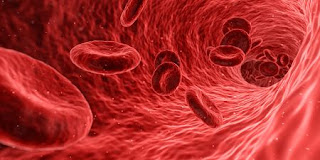Corticosteroids
and MS (Part 1)
Each of us has been treated
with Cortisteroids, and Corticosterioids have been used in the treatment of MS
since 1950, and today they are the treatment therapy in the treatment of
relapse of the disease. The main goal of treatment emergent functional recovery
of neurological deficits and prevent the accumulation of neurological deficits
that are acquired during an acute exacerbation.
With this introduction, they
surely started moving your questions around the head. So let's go.
What are corticosteroids?
Corticosteroids are drugs we
call steroid hormones. They are synthetically produced hormones and used to
treat various pathological conditions in humans. They share glucocorticoids and
Mineralocorticoids, and a primitive glucocorticoid is a cortisol that glows the
adrenal gland.
They can be applied locally
as an aerosol-inhalable, skin cream, eye drops or nose, given as tablets,
locally into the common space, intravenously and intramuscularly. Drugs from
the group of corticosteroids that are mostly used in neurology are: Nirypan,
Dexason, Lemod solu. Lemod depot, prednisone, hydrocortisone, Diprophos and
others.
How corticosteroids work on the body?
Glucocorticoids have an
effect on the metabolism of glucose, proteins and fats, as well as long-term
adaptation of the organism to stressful situations. Mineralocorticoids
participate in the regulation of the concentration of electrolytes in the body
(sodium, potassium), and the main representative is aldosterone, a hormone that
enhances sodium resorption in the renal tubules and the secretion of potassium
into the urine.
The immune system works
shortly after administration, used to achieve rapid clinical improvement before
other drugs begin to act. Corticosteroids are used to treat inflammatory and
autoimmune disorders. They improve the state of the immune response.
In addition to the
significant therapeutic effects they have, they can also lead to the occurrence
of a number of side effects, especially when taken long-term. Their use beyond
the control of a physician can lead to adverse reactions as it acts hormonally,
mainly in terms of adrenaline (an adrenaline disorder can cause heartburn).
Therefore, they are only used in severe cases, and usually the therapy takes
relatively shortly with the supervision of a doctor.
Why is it important to take into
account the amount of salt in food while you are on corticosteroid therapy?
If you have prescribed
corticosteroid drugs you need to reduce the amount of salt in your diet. All
corticosteroids affect the metabolism of carbohydrates, proteins and lipids, as
well as the balance of water and electrolytes. Too much salt increases the
feeling of thirst as well as the amount of fluid in the body that can lead to
edema (islet) and high blood pressure.
Useful
tips (Recommendations for nutrition during the use of drugs from the group of
corticosteroids.):
- When cooking, replace some of the salts with herbs: parsley, pepper, ren, white and onion, ale pepper, basil basil, ginger, lemon juice, ...
- Experiment with spices, browse some chef and enjoy new tastes.
- Get the brine from the table.
- Do not use Vegeta, the spice C and similar finished spices.
- Avoid buying and using processed food and finished products added with it.
- When buying finished products, read their composition and give preference to products without added salt.
- Avoid fast food kiosks.
- At work, on a trip, consume food stored at home (sandwich, salad, pie, proya, etc.) or buy fruit, yoghurt, fruit juice, and whole biscuits. Instead of tinned vegetables (sour cabbage, turkey, pickles, canned beets, etc.), use fresh and frozen vegetables now in abundance and during the winter months. Use as little dried meat as you can, and for dinner or breakfast you can take a piece of meat from lunch, then egg or non-cheese.
- Instead of bread that is often salty, in some meal during the day, use bread substitutes: rice, potatoes, cereals, cooked cereals, butter or salt-free pastries
For more information, please
check out the links below:
“Why You Should Share Your
Story about Living with a Chronic Illness” www.healthcentral.com
Sources:




Comments
Post a Comment